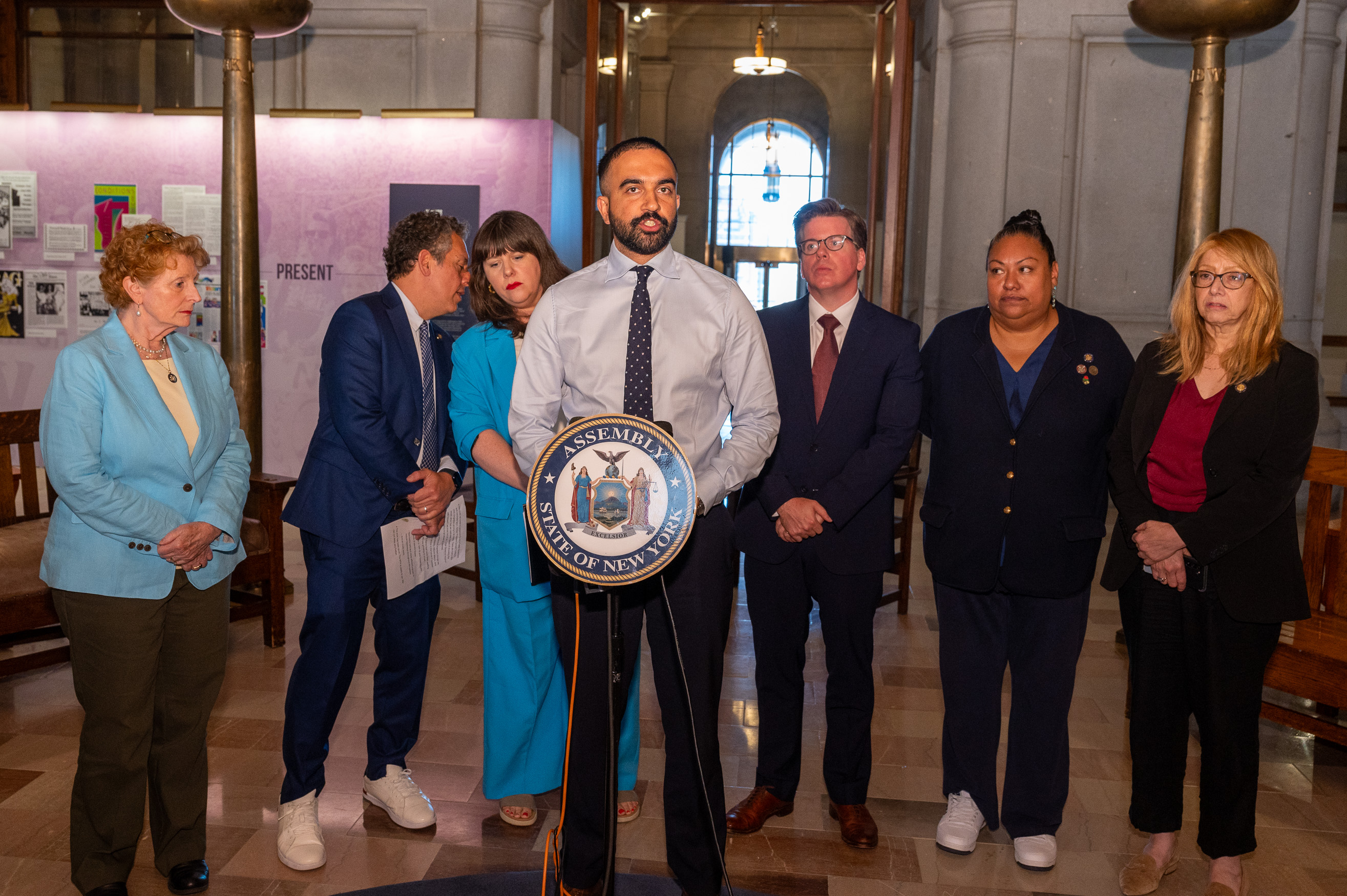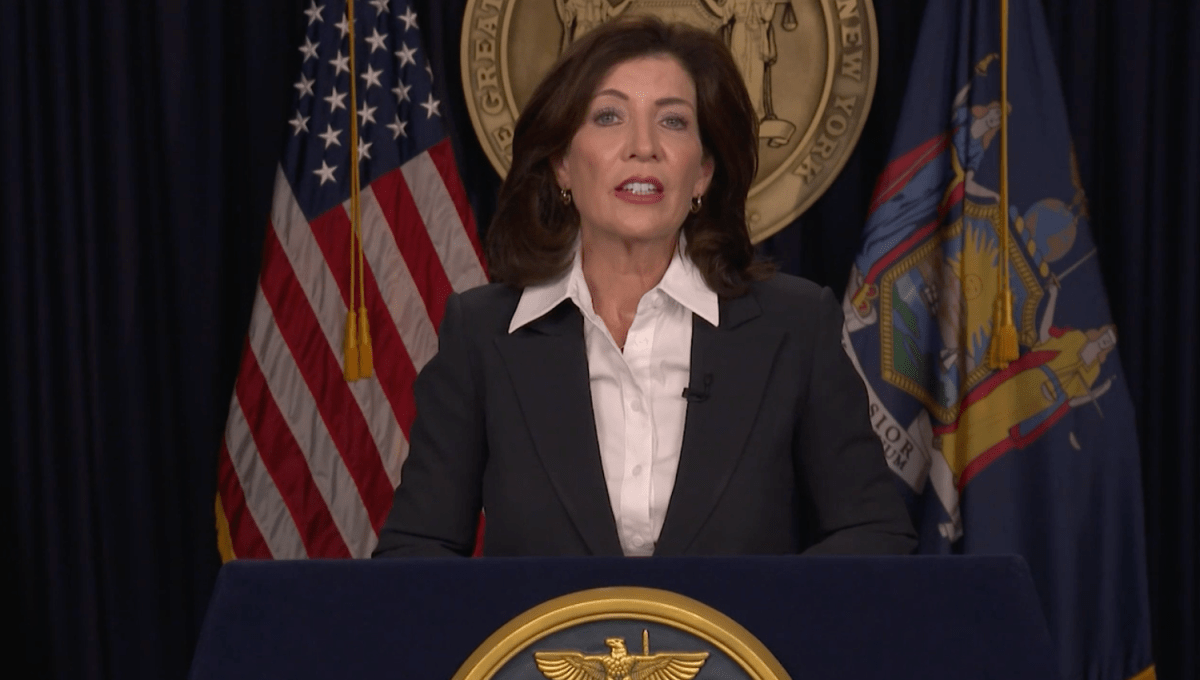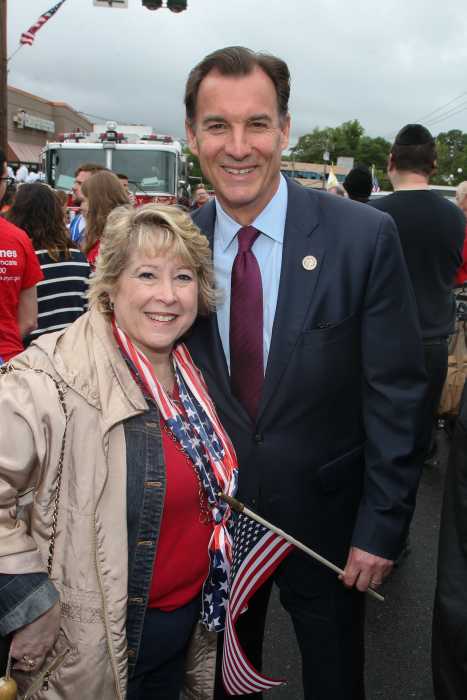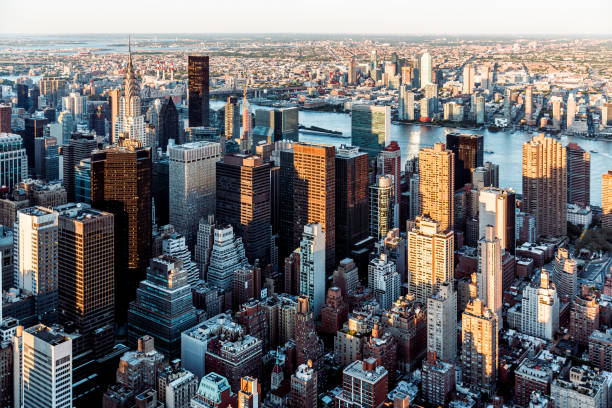Governor Kathy Hochul surprised everyone on Wednesday when she announced that congestion pricing would be paused indefinitely.
“Circumstances have changed and we must respond to the facts on the ground — not from the rhetoric from five years ago. So, after careful consideration, I have come to the difficult decision that implementing the planned congestion pricing system risks too many unintended consequences for New Yorkers at this time,” said Hochul in a prerecorded video message.
Elected officials from the city to the federal level, as well as concerned citizens and advocacy groups, were quick to share their reactions to the unexpected news. The governor announced the backtrack less than a month before drivers entering Manhattan below 60th Street were set to pay a new $15 toll and the infrastructure was already in place.
Its overturn was a major blow to transportation and climate advocates who have been hailing the plan as one way to generate revenue for improvements to buses, trains and their stations across the city. But the many opponents of the plan, who argued that burdening the cost was unfair to many groups who commute into Manhattan by car especially, with the increased cost of living, did not hide their relief.
The day after the announcement, state elected officials held two separate press conferences in Albany – one group celebrated the governor’s announcement while another group of leaders gathered to condemn it and encourage the governor to stick with the original plan.
Among those who called for congestion pricing to be reinstated were two Queens electeds – Assemblymember Zohran Mamdani and State Senator Jessica Ramos – who delivered sharp rebukes.
“Governor Hochul’s about-face on Congestion Pricing is why people don’t trust politicians,” said Mamdani, who represents Astoria and has been a vocal supporter of improving the MTA. “This will hurt millions of New Yorkers who rely on public transit and is political malpractice of the highest order.”

Mamdani pointed out that the MTA has already spent $507 million to roll out the tolling infrastructure, which was already fully installed months ago. That is why he is not buying Hochul’s claim that the move is in an effort to save money, even though it will for car commuters.
In recent weeks, announcements reminded commuters about the plan, taking over variable message boards on highways in the tri-state area. A day after the announcement already made waves, E-ZPass sent out an email reminding users of the new toll, which highlighted the unplanned nature of Hochul’s move.
“New Yorkers just lost half a billion dollars because the Governor is afraid of her own shadow,” “Mamdani said. She says the facts have changed since this was passed in 2019. Have they changed since Dec. 5 when she said congestion pricing would mean ‘less traffic, cleaner air, faster buses?’ Since May 20 when she touted it in Ireland? Why is it now okay to choke on the same exhaust fumes she critiqued then?”
“In pausing congestion pricing, Gov Hochul has effectively killed the MTA Capital Plan. This is a slap in the face to our neighbors who rely on a functioning public transportation system. This decision will also cost NYers jobs and will have devastating environmental consequences,” wrote State Senator Jessica Ramos on X, of the historic $54.8 billion investment in transportation infrastructure.
Of those who celebrated the announcement was State Assemblymember Edward Braunstein, who said, “Northeast Queens has limited transit options. Many working families must drive to commute into Manhattan. As New Yorkers are grappling with an increased cost of living, it is not the right time to implement congestion pricing.”
He was not the only one who argued that for those who reside in transit deserts in the outer boroughs, congestion pricing was burdensome given the lack of alternative options. But last month, the Assemblyman celebrated a pilot program that would reduce the cost of monthly rail passes to encourage ridership before congestion pricing was set to start on June 30.
“I applaud Governor Hochul’s decision to ‘indefinitely pause’ New York’s congestion pricing program. It has been hard for New Yorkers to bounce back since the pandemic. The Governor realized that economically, congestion pricing would take an unnecessary toll on our residents that travel into Manhattan,” said Assemblyman David Weprin, who represents a stretch of central Queens from Richmond Hill to Hollis Hills.
Weprin noted that he has been one of the “most vocal critics” of congestion pricing since it was first proposed in 2007. His opposition spanned his time as a city council member and in the state assembly.
Over a year before Governor Hochul made her announcement, Queens State Senator Joseph Addabbo Jr. introduced legislation to delay the start and enforcement of congestion pricing. While the bill is still active and in the early stages of the legislative process, Addabbo was glad to see the initiative squandered.
“While I understand the program’s intent to reduce traffic congestion, improve air quality, and financially support our public transit system, I had concerns about the impact on New Yorkers residing in transit deserts with no viable transportation option into Manhattan other than by car,” said State Senator Addabbo in a statement. “I believe that delaying the implementation of the Central Business District Tolling Program would allow residents and tourists to better prepare for this unwarranted expense as we continue recovering from the COVID-19 pandemic and inflation.”
He also mentioned the financial burden would fall on taxi drivers and truck drivers, as well as the elderly and disabled who are not able to use public transit. He said he believes that it would hurt the local economy if outer borough residents, as well as those on Long Island and in New Jersey, were deterred from visiting Manhattan’s restaurants and theaters because of the new cost.
As a solution to the MTA’s lack of funding, he suggests that the licenses for three casino proposals in the city be expedited. He estimates that the license fees would allocate up to $3 million to the MTA, or what is roughly three years of imposed congestion pricing.
Rockaway Assemblymember Stacey Pheffer Amato, who was involved in supporting Addabbo’s legislation, also celebrated the demise of the plan.
“The rationale for congestion pricing is no longer relevant and there would be too many unintended consequences. This was the right move by the Governor. Congestion pricing, if implemented, would cause an undue burden on the residents of South Queens,” Amato said in a statement. “I am proud to report that our voices have been heard!”
Other state elected officials in Queens called on the governor to reverse course and follow through on her past commitment to addressing climate change and improving public transit for millions of commuters who rely on the system.
“For years, I’ve advocated alongside my colleagues and transit and environmental advocates to advance a congestion pricing program that gets cars off the streets, reduces harmful pollution and encourages mass transit,” said Assemblymember Jessica González-Rojas, who represents Corona and Woodside, in a statement. “A further delay will not only contribute to our deteriorating public transportation infrastructure, but it would also mean putting the health of New Yorkers on the back burner.”


































